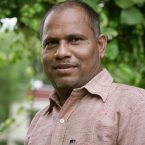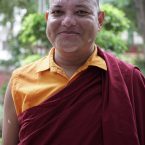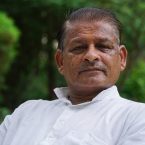དྲྭ་རྒྱར་གཟིགས་མཁན།






དྲྭ་རྒྱར་གཟིགས་མཁན།






Working Hours of CIHTS
| Sr. | Name of Department / Post | Working Hour | Lunch Break |
| 1 | Teaching (Regular) Teaching (Tutorial) | 8:00AM – 1:15PM 2:30PM – 4:30PM | |
| 2 | Non Teaching | 10:00AM – 5:00PM | 1:00PM – 1:30PM |
| 3 | Research | 10:00AM – 5:00PM | 1:00PM – 1:30PM |
| 4 | Library | 9:00AM – 6:30PM 9:00AM – 5:00PM | 1:00PM – 1:30PM |
| 5 | Electrician | 6:00AM – 2:00PM 2:00PM – 10:00PM 10 :00PM- 6:00AM | |
| 6 | Pump Operator | 6:00AM – 2:00PM 2:00PM – 10:00PM 10 :00PM- 6:00AM | |
| 7 | Plumber | 9:00AM – 5:00PM | 1:00PM – 2:00PM |
| 8 | Mali | 9:00AM – 5:00PM | 1:00PM – 2:00PM |
| 9 | Safaiwala | 7:00AM – 5:00PM 8:00AM – 5:00PM | 12:00PM – 2:00PM 1:00PM – 2:00PM |

Associate Professor of Sanskrit
Director (NMM, New Delhi)
Profile: Dr. Anirban Dash, Associate Professor of Sanskrit, has been teaching at the UG and PG levels in the Faculty of Shabda Vidya, CIHTS since 2018. Dr. Dash has received his Ph.D. degree from the Department of Sanskrit and Prakrit languages, University of Pune, Maharashtra. As an expert of Indic Manuscriptology and Paleography, he has taught ancient Indic scripts at more than 80 Universities and Institutes across India and abroad. He has been a visiting faculty in the Indology section, Department of Asian Studies, Institute for Cross-Cultural and Regional Studies, University of Copenhagen (Denmark); Otani University (Japan) and Heidelberg University (Germany).
Currently, he oversees and curates a team of researchers in India who are creating a searchable electronic database from microfilms & photocopies of ancient manuscripts for Muktabodha Indological Research Institute (USA). He has authored four books and more than 30 articles in his area of specialization and his current book project is – A Buddhist Sanskrit Manual. His responsibilities also include a Coordinator, IQAC – CIHTS, Sarnath.
Currently, he is the Director of National Mission for Manuscripts, New Delhi on deputation.

Assistant Professor of Sanskrit
(Contractual)
Profile: Ven. Dr. Dawa Sherpa completed his Ph.D. in 2019 from CIHTS. He has been teaching Sanskrit as a Guest Faculty in Sowa-Rigpa Department since 2014. His main interest is Buddhism in general and Tibetan-Sanskrit-Pali Buddhism in particular. He belongs to the Nyingmapa school of Tibetan Buddhism and his interest also covers Tantra in Nyingmapa School, Tibetan, Sanskrit, Pali language and literature. He is involved in doing research on Buddhist scriptures and translating Buddhist texts from Sanskrit to Tibetan, Pali to Tibetan and restoring Buddhist texts from Tibetan to Sanskrit. Furthermore, his research includes comparative studies of Indian Philosophy. Currently he is translating and editing Ayurvedic Texts in Tibetan with Prof. Lobsang Tenzin, Sowa Rigpa Department. He is also independently translating Pali-Suttas into Tibetan.

Professor of Sanskrit
Profile: After traditional graduation, Prof. Chaturvedi obtained his Master and Ph.D.degree from B.H.U. He served as the Head of Sanskrit Department at C.I.H.T.S. from 2002 to 2020. Since 2017, he has been serving as Faculty Dean of Shabda Vidya, Department of Classical and Modern Languages. His teaching and research fields are – Panini grammar, Saraswat grammar and Katantra grammar. He has deep interest in Sanskrit poetry. He has composed many poems, edited, translated and published many books. He has presented and directed many dramas in the institution. He has organized conferences, Sanskrit debate competitions, and Sanskrit workshops. He has presented many Sanskrit poems in Sanskrit poet’s conferences and many research papers in conferences organized by various universities. He has guided Ph.D. scholar and M.Phil. student. Currently He is a member of many committees. He has been editing Annual Report since 2016-17 to till now. He has published many research articles in journals.